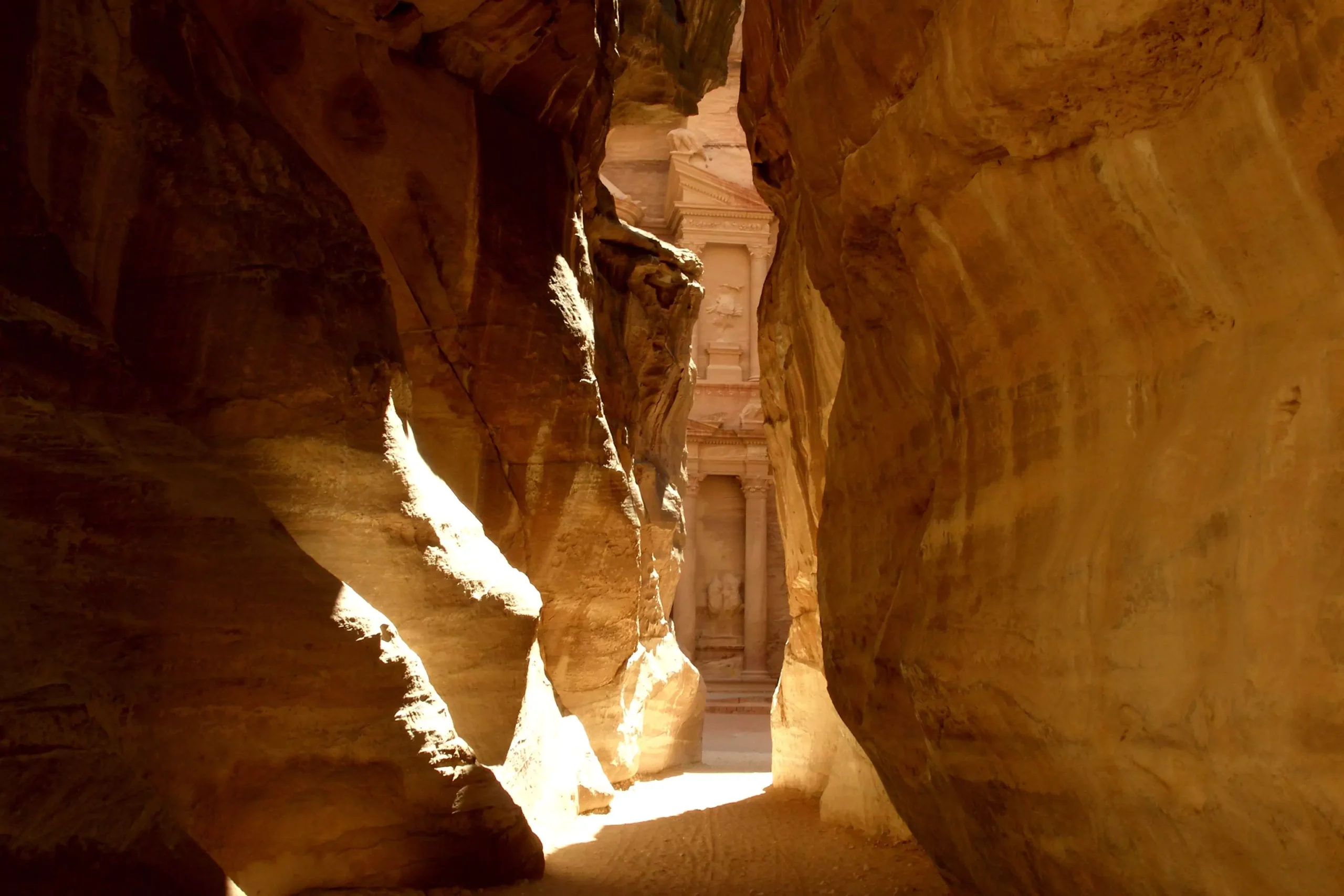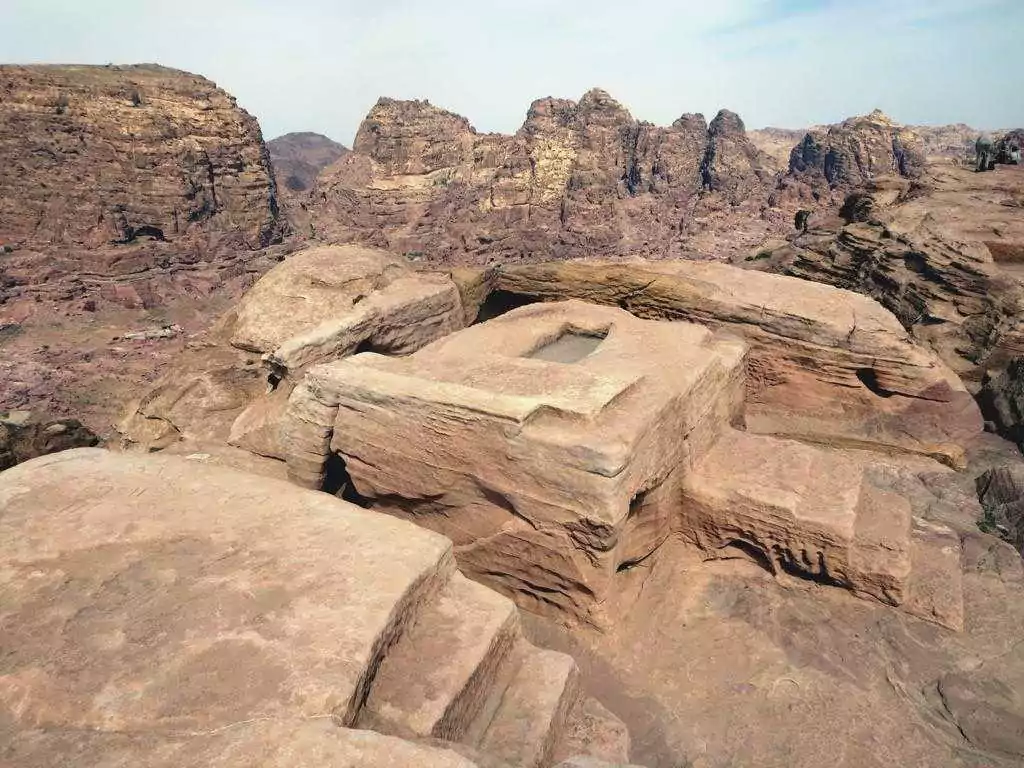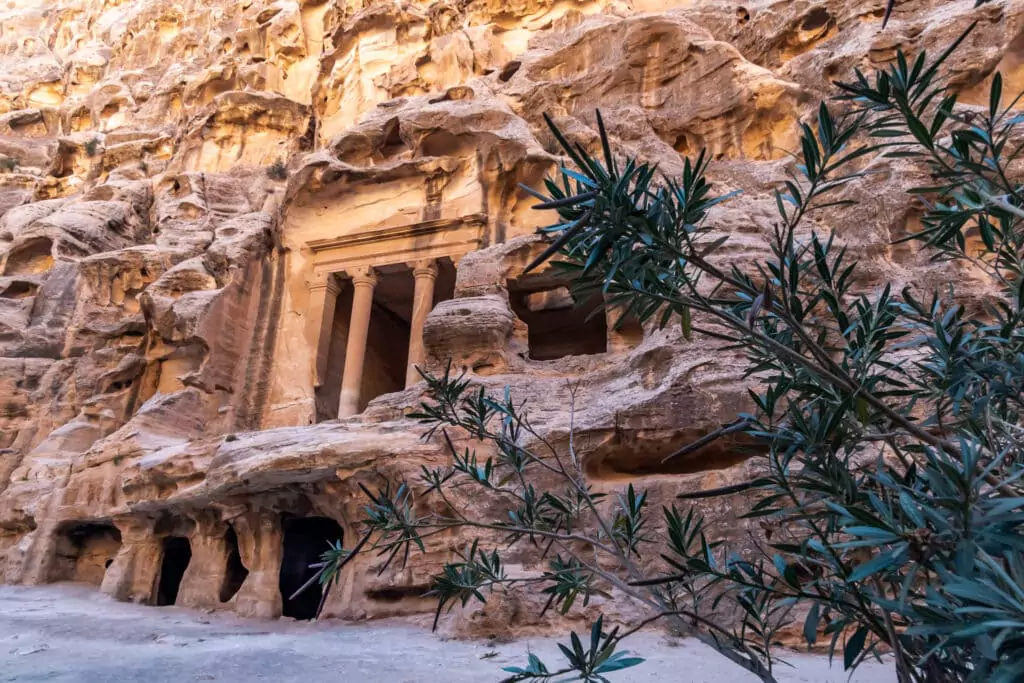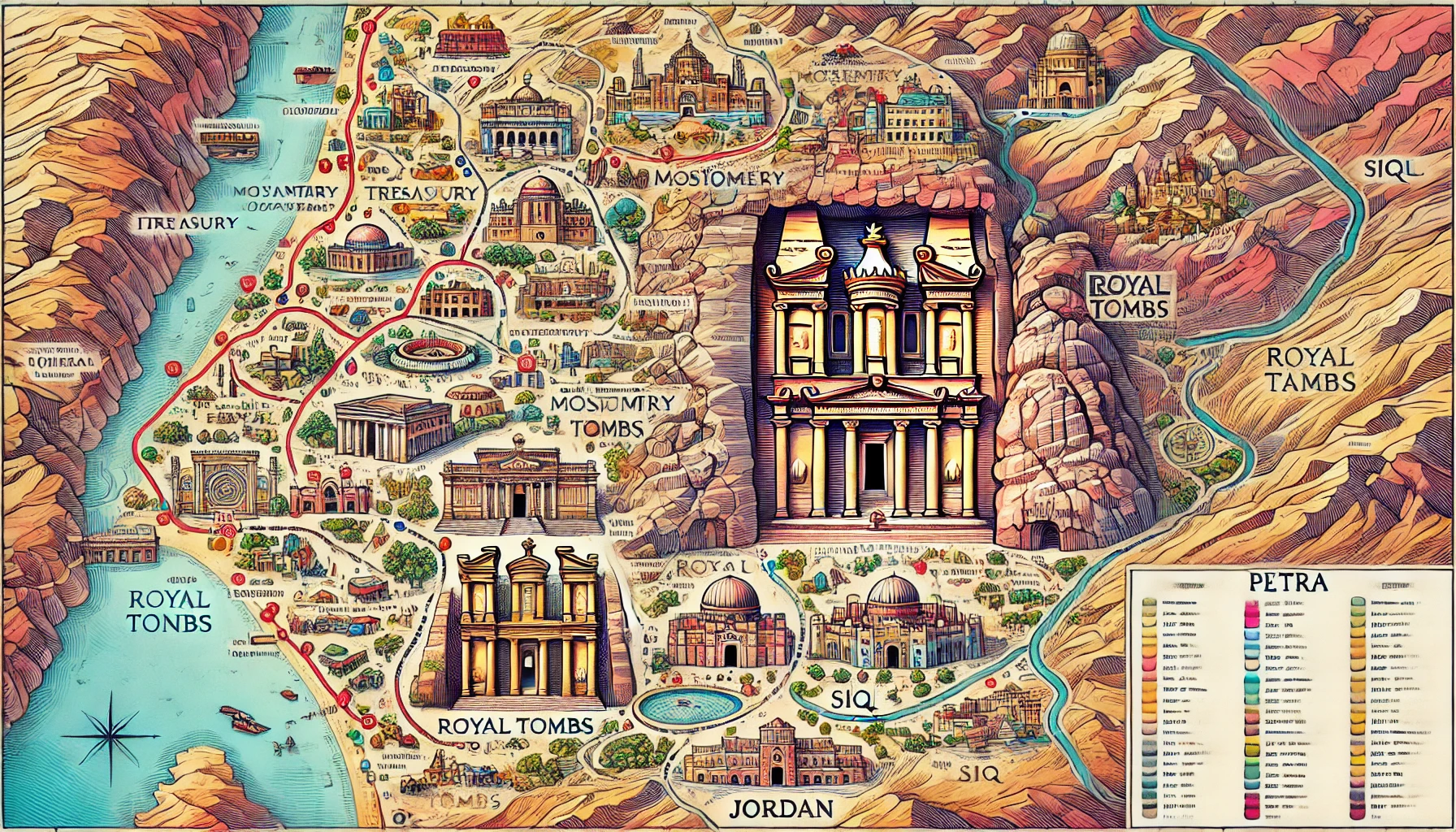The Treasury, also known as Al Khazneh in Arabic, is the crown jewel of Petra, an ancient city nestled in the heart of Jordan. Carved into the sheer rock face of a sandstone canyon, this iconic monument stands as a testament to the ingenuity and artistry of the Nabataean civilization. Its intricate facade, towering over 40 meters high, has captivated travelers for centuries, making it one of the most recognizable landmarks in the world.
Unveiling the Secrets of Petra’s Treasury
The Treasury’s purpose remains shrouded in mystery, with theories ranging from a royal tomb to a temple dedicated to the Nabataean goddess Al-Uzza. Its name, “The Treasury,” stems from a local legend that pirates hid their treasure in the urn high on the second level. Archaeological evidence, however, suggests that it was most likely a mausoleum for a Nabataean king in the 1st century AD.
The Treasury Petra: Architectural Marvel
The facade, a blend of Hellenistic and Nabataean architectural styles, is adorned with elaborate carvings of gods, goddesses, and mythical creatures. The central figure is believed to be Isis, the Egyptian goddess of magic and fertility. The intricate details, remarkably preserved despite centuries of exposure to the elements, continue to inspire awe and wonder in visitors today.
Al Khazneh: Experiencing the Majesty
Approaching the Treasury is an adventure in itself. The journey begins with a walk through the Siq, a narrow gorge flanked by towering cliffs that lead to the monument’s hidden entrance. As you emerge from the Siq, the Treasury’s facade suddenly comes into view, bathed in the soft light of the Jordanian sun. The sight is nothing short of breathtaking.
Exploring the Treasury Petra
Once you’ve taken in the grandeur of the facade, take some time to explore the surrounding area. You can climb the steps to the side of the Treasury for a different perspective or wander through the nearby caves and tombs. Local Bedouin guides are available to offer insights into the history and significance of the site.
Planning Your Visit to Petra’s Treasury
Address: Petra Archaeological Park, Wadi Musa, Jordan
Opening Hours: 6:00 AM to 5:00 PM daily
Contact Information: +962 3 215 6091
Entrance Fees: Included in the Petra Archaeological Park entrance fee (50 JOD for one day, 55 JOD for two days, 60 JOD for three days)
Tips for Visiting the Treasury Petra
- Arrive early: Beat the crowds and the midday heat by arriving early in the morning.
- Wear comfortable shoes: You’ll be doing a lot of walking, so comfortable footwear is essential.
- Bring water: Stay hydrated, especially during the warmer months.
- Hire a local guide: A guide can provide valuable insights and enhance your experience.
- Respect the site: Refrain from touching or climbing on the monuments.
Beyond Al Khazneh: Exploring Petra’s Hidden Gems
While the Treasury is undoubtedly the highlight of Petra, the ancient city has much more to offer. Here are some other must-see attractions:
The Monastery (Ad-Deir): Petra’s Second Wonder
A monumental tomb carved into the cliff face, even larger than the Treasury. It’s a challenging but rewarding hike to reach it, with stunning views of the surrounding landscape.

The Siq: Gateway to the Treasury
The narrow gorge leading to the Treasury is an attraction in itself, with its towering cliffs and colorful rock formations.

The Royal Tombs: Nabataean Necropolis
A series of elaborate tombs carved into the cliff face, each with its unique architectural style and decorations.

The High Place of Sacrifice: Ancient Rituals in Petra
A sacred site with panoramic views of Petra and the surrounding mountains.

Little Petra (Siq al-Barid): A Miniature Petra Experience
A smaller version of Petra, with similar rock-cut architecture and fewer crowds.

Practical Travel Tips for Visiting Petra Jordan
Getting to Petra: Your Transportation Options
- By Air: The closest airport is Queen Alia International Airport (AMM) in Amman. From there, you can take a taxi, bus, or rental car to Petra (approximately 3-hour drive).
- By Bus: JETT buses operate daily services from Amman to Petra.
- By Car: Renting a car gives you the flexibility to explore the region at your own pace.
Currency Exchange in Jordan
The Jordanian Dinar (JOD) is the official currency. ATMs are available in Wadi Musa, the town near Petra. Credit cards are widely accepted in hotels and restaurants.
Cultural Etiquette in Jordan
- Dress modestly, especially when visiting religious sites.
- Ask permission before taking photos of people.
- Bargaining is expected in souvenir shops.
- Learn a few basic Arabic phrases.
Transliteration: Essential Arabic Phrases for Travelers in Jordan
Greetings
- Hello: As-salamu alaykum (as-salamu alaykum)
- Good morning: Sabah al-khair (Sabah al-khair)
- Good evening: Masaa al-khair (Masaa al-khair)
- Thank you: Shukran (shukran)
- You’re welcome: Afwan (afwan)
Directions
- Where is…? Ayna…? (ayna…?)
- Left: Yasar (yasar)
- Right: Yameen (yameen)
- Straight ahead: Ala tool (ala tool)
Dining
- The bill, please: Al-hisab, min fadlik (al-hisab, min fadlik)
- Delicious: Latif (latif)
- Water: Maa (maa)
Emergencies
- Help!: Al-musاعدة! (al-musa’adah)
- Police: Shurta (shurta)
- Hospital: Mustashfa (mustashfa)
Note: Arabic pronunciation can be challenging. It’s helpful to listen to audio recordings or ask a local to help you with pronunciation.
Unforgettable Experiences: Stories from the Treasury Petra
Many travelers have shared their awe-inspiring experiences at Petra, particularly encountering the Treasury for the first time. Here’s one such story:
“After a long but exciting walk through the Siq, I turned the final corner, and there it was – the Treasury. The sunlight was hitting it perfectly, making the colors of the stone even more vibrant. It was like stepping into an Indiana Jones movie. I was completely speechless. It was truly a moment I’ll never forget.” – Sarah, a traveler from the UK.





